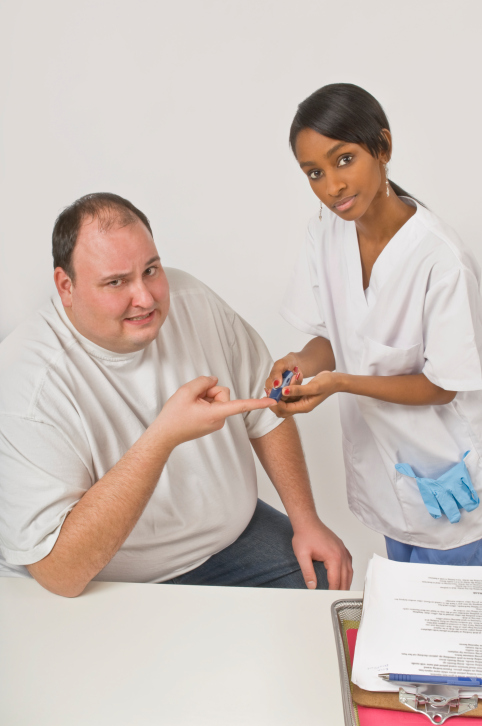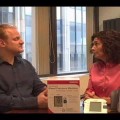Advances In Diabetes Care
There have been remarkable advances in diabetes care and management over the last 80 years. Prior to the discovery of insulin in the 1800’s and early 1900’s the treatments for diabetes was, among others, bleeding, exercise, opium, fad diets including a very strict starvation diet, a diet low in carbohydrates and high in fat and protein. This last treatment was difficult to adhere to but extended the lives of people with diabetes by approximately 1 year. With the discovery of insulin in 1921, people with diabetes had at least a treatment for their condition. Originally extracted from the pancreases of cows and pigs the liquid was very impure, large doses were needed and caused abscesses at the site it was injected. Insulin became readily available in 1923. This insulin was only short-acting so multiple doses were needed throughout the day to control diabetes symptoms. In the 1930’, the first long-acting insulin Protamine Zinc Insulin (PZI) became available.
In the 1940’s Neutral Protamine Hagedorn (NPH) insulin became available and is still widely used today. Also in the 1940’s the first standardized insulin syringe was made. Syringes needed to be sterilized by boiling them and the needle needed to be sharpened regularly. In the 1950’s, adding zinc to insulin produced another type of insulin including Lente, Ultralente (also still used today) and Semilente. In the 1960’s, insulin became more pure. In the late 1970’s and into the 1980’s, many new advances were introduced to help people live better lives and better control their diabetes including blood glucose monitoring, disposable insulin syringes, insulin infusion pumps, insulin pens, Glucagon and Human insulins. The 1990’s continued this trend, in 1993, the Diabetes Control and Complications Trial (DCCT), the longest, largest diabetes study ever undertaken, demonstrated that intensive therapy and excellent diabetes control prevented or delayed the long-term complications associated with diabetes. In 1996, the first rapid-acting insulin analog, Humalog , became FDA approved. The Continuous Glucose Monitoring System (CGMS) became available in 1999. In the year 2000, NovoLog , another rapid-acting analog was introduced. In 2001, Lantus , became the first and currently only long-acting analog available. The GlucoWatch received FDA approval and is the first non-invasive glucose monitoring device. There are also computer programs to download information about blood glucoses, insulin, exercise and other details; at-home and mail-away HbA1c kits, mail-away kits to check kidneys available today.
So while we have come a long way in diabetes, we have in some respects landed where we started, with the trend of treatment being multiple daily injections to control diabetes. Ultimately, our goal now is quite different given the technology at our disposal, specifically, optimal control of blood glucoses levels instead of merely controlling the symptoms and preventing death. Insulin pens are a popular choice among many practitioners as a tool for people with diabetes using multiple injections. They are convenient and discreet and deliver consistent amounts of insulin when prepared and used properly. BD has recently introduced their new insulin pen needle, known as the BD Ultra-Fine III Mini pen needle. It is 5 mm (3/16 of an inch) long and even thinner, 31 gauge, than it’s predecessors. This new needle may make injections even less intimidating and more comfortable for the person with diabetes and the parent or caregiver who needs to do the injection. Also, since this needle does not require the person with diabetes to pinch up the skin, it may make more sites more accessible and easier to use for injections.
Additionally, many practitioners have prescribed insulin doses in * unit increments for a long time for pediatric patients, adult patients requiring small doses of insulin, patients using intensive regimens and those who are using insulin correction and insulin to carbohydrate ratios. Teaching the person to use the spaces between the marked lines on traditional 30 unit and even 50 unit syringes as the area for * unit doses. Each giving tips to patients for how to measure this type of dose most accurately and to use this procedure consistently to help improve blood glucose control. The new BD UltraFine II Short Needle Half-Unit Scale (30 unit) insulin syringe offers people with diabetes a more precise way to measure very small doses of insulin with clear, alternating markings for doses in * unit increments. With the push for multiple daily injections and the use of insulin pens, the new pen needle may make this a more viable option and the new syringe may make small doses more accurately measurable.
So what’s in the future for diabetes? New products and developments are being investigated every day for new technologies to measure blood glucose, new insulins such as analogs and new ways to give insulin such as finding a way to give insulin by mouth but avoid it being digested or even inhaled insulin. The Holy Grail is still to find a cure for diabetes. Researchers continue to pursue a myriad of avenues including developing an artificial pancreas, transplants to cure diabetes and ways to prevent diabetes from happening all together. The possibilities are endless.






